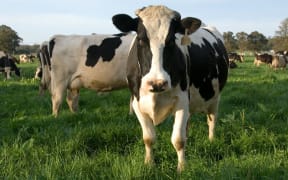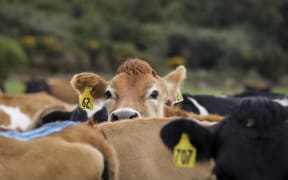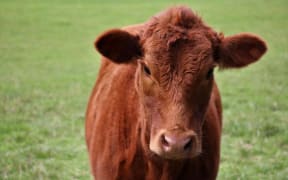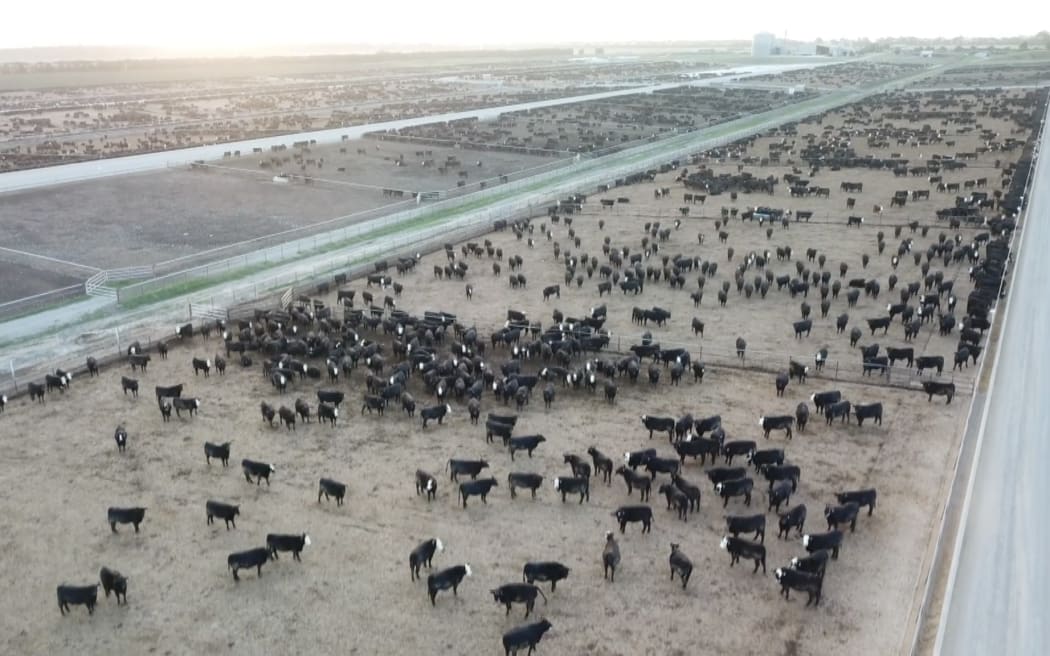
The Five Star Beef feedlot is the biggest in New Zealand. Photo: Supplied / SAFE
Ashburton's mayor backs the de-population of the district's major cattle feedlot to curb the mycoplasma bovis disease, even though he expects an impact on the local economy.
Mayor Neil Brown said he supported Biosecurity New Zealand's move at Five Star Beef's ANZCO feedlot at Wakanui, and putting a buffer zone around it.
"If it's leaking out of the feedlot, then they need to empty the feedlot," Brown said of the animal feeding outlet, which generally houses about 12,000 cattle.
"If anything has leaked out of the feedlot, and is in those animals, they will be culled to eradicate the disease from the area.''

Brown admitted those actions would "have a ripple effect across the Ashburton economy as a lot of businesses get income off the feedlot".
He said meat works, feed suppliers, and farmers selling stock would be impacted, as well as the farmers that would have stock culled - some for a second time.
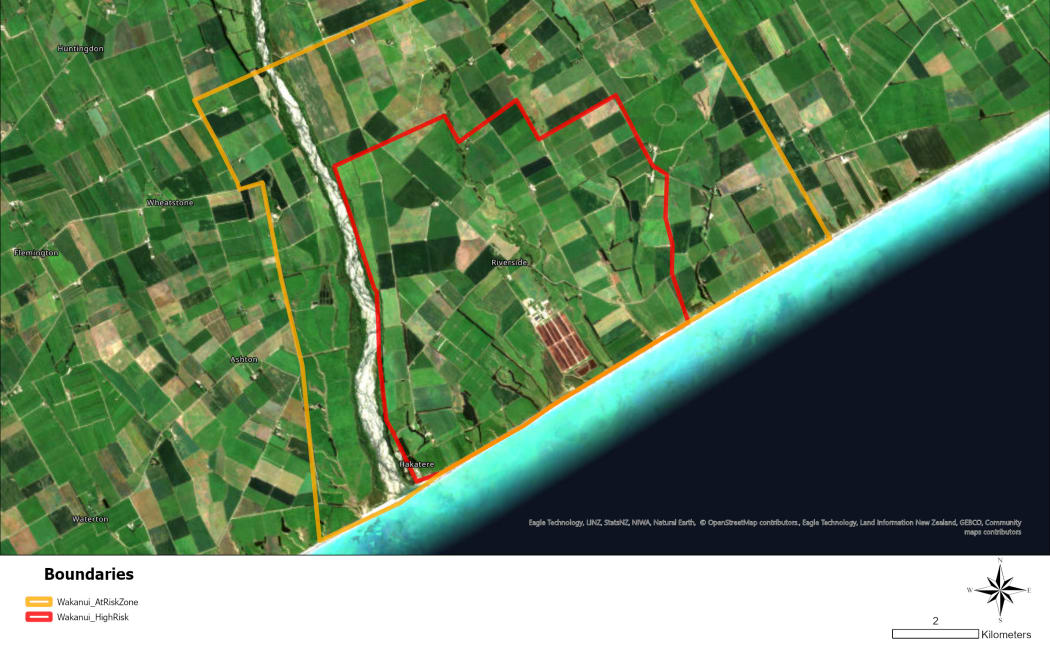
The Wakanui area will be put under a Controlled Area Notice (CAN) from 13 October, restricting the movement of cattle in an effort to stop Mycoplasma bovis circulating in the area. It includes a high-risk area (red) and at-risk area (orange). Photo: Supplied
Ministry for Primary Industries have said they would begin culling infected livestock at the feedlot from 13 October. To coincide with that de-population, a controlled area notice (CAN) is to be introduced for the Wakanui area, affecting 14 cattle farms - including three properties owned by ANZCO.
As part of the CAN, eight properties in the high-risk area will be depopulated by mid-January 2023. A further six farms in the at-risk area around the feedlot will undergo increased testing.
"We are working hard to investigate the exact transmission route, but at present that remains unclear," MPI's M bovis programme director Simon Andrew said.
"Without a precise understanding of why this is happening, we need to take a different approach to protect cattle and farmers in the area."
Brown, who has farms by the Rakaia River, backed moves to complete the successful eradication of the infectious disease, which has plagued the industry since 2017.
"With my farming hat own, I'm glad MPI are doing what they are doing,'' Brown said.
"They are so close to eradication now they don't want to let anything get out."
He said MPI had spent around $588 million on eradication "so let's finish it off properly".
Local Democracy Reporting is Public Interest Journalism funded through NZ On Air
